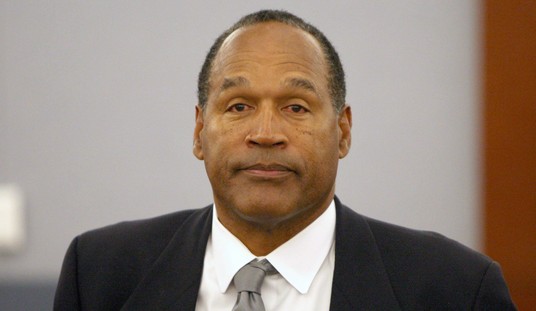What is the value of human life? Is our existence measured by our ability to throw a ball, paint a picture, or move a crowd to action? Does the yardstick by which our worth is measured include the number of our Facebook friends, or the popularity of our website?
Can it be gauged by the books we have written, or the awards and accolades we have garnered? Can our worth be measured by the amount of money we amass, or the size of our home? Or eschewing earthly trappings, should we turn instead to greeting- card philosophy and measure the value of a life by good works, charitable actions, the people we love and who love us, and by the other lives we have touched?
Chances are good that if we were to query any sizable sample of people as to what gives life value, we would get any number of combinations of the above answers.
But does a life, even a life unfulfilled have intrinsic value? Can we measure the value of any life by the mark it makes up on the world and the trail, both physical and metaphysical a person leaves in his wake? Does a life only have value if it leaves a measurable impact upon the world? How do we measure value?
Recently, the issue has resurfaced over the use of HEK 293 by a company called Semonyx. The opinions about HEK293 cover the gamut. In a nutshell, HEK 293 stands for Human Embryonic Kidney, Experiment 293. It is a line of cells developed from a fetus back in the 1970’s in Holland. The latest debate involves the use of HEK 293 to test the efficacy and side effects of additives to various sodas, candies and in some cases, vaccines. I blanched a little bit when heard about the process, and many are up in arms about the idea.
Recommended
The rumor that will not die is that HEK 293 is added to various drinks and treats to make them tastier, and perhaps healthier to consume. That is not the case. No one is adding fetal cells or tissue of any kind to anything being consumed by people. There however is a great degree of consensus on the matter that the original cells were taken from an aborted baby.
Proponents point out that it is not as it if a steady stream of babies is being harvested to provide these cells and that they are clones of the original that was used over 30 years ago, and hence it is no big deal. Some cite the medical advances made from the use of such cells, others note that some have gone so far as to say waste not want not, the fetus was dead already, why not put its organs to good use? I myself am an organ donor, and after I’m gone, whatever medical science or people in need can find, they can have. But note: I made the choice to hand over my innards at the moment of death.
So if it is 30 plus years down the road from that original fetus, and the original cells are no longer in existence (in fact, one can apparently buy HEK 293 cells over the internet) does it matter? Well perhaps it doesn’t. By no stretch of the imagination is this Soylent Green or a chapter from The Island of Dr. Moreau. And the cells have been in use for so long, that kind of makes it business as usual, right?
Maybe that is the startling part. That it is business as usual. Even if biotech companies are not ordering crates of embryos for research, the practice has put off people on both sides of the abortion debate. Maybe it is because there is something unsettling about the connection of dead people to food, or vaccines or anything that goes into the human body, no matter how sterile the process is and even if it does not involve fetal cells as ingredients. There is something about that idea that resonates badly with many.
And I hold that there is a cautionary note here: Just because the cells were harvested 30 some-odd years ago, simply because science today is using a copy of a copy of a copy etc. does not mean that something of the humanity has been lost. Somewhere, at least one person we can vouch for stopped being a person, and became well, a source of a product. And speaking for myself, if someone is developed enough to have a kidney I would say that qualifies them for personhood. And the baby may be dead, but it is in fact a dead person of which use is being made, without that person’s knowledge or consent.
Reflect for a moment: If the cells in question were not harvested from a human embryo but were instead taken from an animal of some kind, would the animal rights people be upset and demand that the practice stop? I suspect the answer would be affirmative. Would they demand that the company in question find a better way? If the answer is yes, then are not the opponents of the use of HEK 293 similarly justified?
There will be those that say that the end justifies the means, and that the advances made through HEK 293 which is often referred to as a “work horse” far outweigh the negative impact of using the kidney cells of an aborted baby harvested 30-plus years ago. They would also argue that those who oppose this kind of research are Luddites who would prefer civil war battlefield amputations, leeches and trepanation to modern medicine.
Hearkening back to the Civil War for a moment, the reason so many people died, or had limbs amputated was because of infection. One battlefield treatment was to dress a wound with a wet cloth, which only promoted infection. Today such a method would be considered medical heresy, but at the time it was the accepted practice. It wasn’t until the sterilization methods pioneered by Joseph Lister began to take hold that rates of death and complications from infections began to decline. The technology and the science advanced.
Those who are in opposition to this type of research are not Luddites; By and large they feel that medical science is quickly advancing to the point that other types of cells can be used for research as opposed to fetal cells. Blood from an umbilical cord contains the same stem cells post-birth as a baby. If those are readily available, why the need for fetal cells. And if in fact technology has progressed to the point that it is time to retire those obnoxious gas guzzling carbon spewing gas-powered cars trucks minivans and SUVS, have we not reached the point that we can eschew the use of embryos, no matter how far removed by time they may be? Is it not time to find a better way? Leaving the choice-versus life argument alone, what value is there to a human being, even a deceased one?
Gruesome pictures of aborted babies aside, the overarching issue from my standpoint is this: at what point does a baby stop being a “him” or a “her” and became an “it”? At what point do we stop being people and become components or sources of material? Have we been slowly positioning ourselves on an ethical footing that a life, any life has no intrinsic value? As much trouble as I may get into for being a conservative citing Bill Moyers Far be it for a conservative to invoke the name of Bill Moyers, but as Joseph Campbell pointed our in “The Power of Myth” the Native Americans revered the bison as an important part of their spirituality.
Despite the fact that they hunted, ate and made use of the bison they saw it as a spiritual relative- a gift from and an incarnation of the Divine. Consequently, they, as Campbell said to Moyers addressed the bison as “Thou”. During the western expansion, the settlers did not have a spiritual connection to the bison and thus had no compunctions about shooting them at will. As Campbell put it, the settlers turned a “Thou” into an “it”. If one approaches humanity with a notion that some spark of the Divine is present within it, then one must consider: Is not a human life, if not worth more than that of bison, at the very least comparable to it?
The issue here is not whether there are fetal cells in your chewing gum or your can of soda. There are not. And the issue of whose body and whose choice is being fought out on countless other web pages as we speak. The issue that I am pondering is the value we place on individual human life and at whether or not is has value in and of itself, or only in what can be extracted from it.
























Join the conversation as a VIP Member